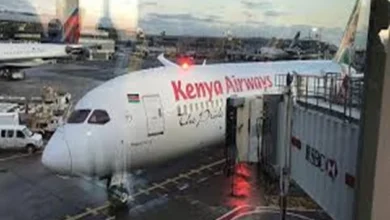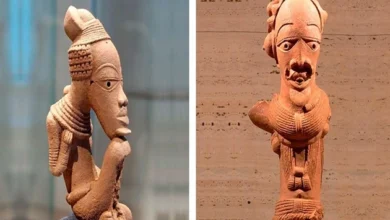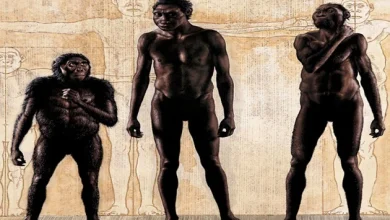Red face or land of black: Origins of some names of African countries

Is it the Arabic traders or Portuguese explorers or European mispronunciation of tribal names that originated some countries’ names in Africa? Even Ethiopia, presumably not to be colonized, got her name from Greek words meaning ‘Burnt Face’.
The perception of African countries has only been around for a little over a century, stemming from the Berlin Conference of 1884 and Africa’s subsequent struggle by the European superpowers of the time. It is therefore not surprising that the names of most African states are a colonial heritage.
Almost every nation on earth derived its names after one of four things – a tribal name, the land feature, description of the country’s direction, or an important person. However, Africa reflects this trend, with a few exceptions.
The way African nations get their names varies from the more down-to-earth to the fantastical and sometimes the unbelievable.
1. Mali
Mali got its name from the original word Bambara for hippopotamus, which evolved to mean “the place where the king lives”. In Malian culture, the hippopotamus implies strength. The story goes to an intriguing Malian legend and empire founder, Sundiata Keita, who turned into a hippopotamus after his death and continued to live in the Sankarani River.
2. Nigeria
Nigeria was named after the River Niger, which flows through them. It was initially called Ni Gir (River Gir) in one of the local languages, although there is also a theory that it was named after the Latin adjective ‘Black’, as in Black River. Lagos, one of the world’s largest cities, means “lakes” in Portuguese, referring to the lagoon islands.
3. Cameroon
Cameroon, a country with a complex heritage, first colonized by the Germans and then divided by the French and English, was named in the 15th century by a Portuguese explorer. After crossing the River Wouri, one of Cameroon’s largest rivers, he renamed it ‘Rio dos Camarões’, meaning ‘shrimp river’ because of shrimps abundance. The name caught on and evolved to become the name of the country.
4. Sierra leone
In another account, a Portuguese explorer, who would have found his way to the West, where he encountered the lion’s tooth-like mountains or the spectacular roar of thunderstorms, would have led him to call the place the ‘Sierra Lyoa’ meaning ‘lion mountains’. Eventually, it is believed that the name change to Sierra Leone.
5. Kenya
Mispronunciation of words gave rise to the name Kenya. Centuries later, another mountain gave its name to a country in East Africa when the British came across an imposing snowy mountain that the Kikuyu people called Kirinyaga, meaning ‘Where God Dwells’.
Having difficulty pronouncing the word ‘Kirinyaga’, they called it “Mount Kenya” – after this mountain, the country derived her name from it.
6. Madagascar
In Madagascar, it wasn’t linguistic problems that resulted in the country’s misnaming but a kind of clerical error. Marco Polo, the Italian explorer of the XIII century, never visited Madagascar but is credited with mistaking it for Mogadishu and including it in his memoirs.
This is the first written mention of Madagascar. However, the corrupted Italian transliteration of Mogadishu, Madageiscar, eventually gave the name to the world’s second-largest island country.
7. Niger
Near Mali, two other countries take their name from West Africa’s main river, the Niger River. Niger was the former French colony in the northern part of Nigeria.
8. Mozambique
The Arab heritage of the African continent is also the origin of some African country names. In Mozambique, the name comes from the Arab chief whose name would remain in the country. Mussa bin Biqe reigned over the region when the Portuguese arrived, and the Portuguese called the country Mozambique.
9. Comoros
The Comoros gets its name from the Arab traders of the 10th century who called it kamar or kumr, meaning moon, perhaps because of the half-moon shape formed by Comoros’ four original islands.
10. Gabon
Gabon, too, would be named after the shape of a place. The country’s first European visitors were Portuguese merchants who arrived in the 15th century and called it Gaboa, meaning a ‘coat’, after the shape of the Como River Estuary they first explored, which looked like a sleeve and hood with
11. Zimbabwe
Zimbabwe reclaims its name in 1979, just before the Kingdom of Zimbabwe’s independence in the 13th-15th centuries, removing its colonial heritage name Rhodesia after Cecil Rhodes.
Cecil Rhodes is a British colonialist whose legacy on the African continent and beyond is called into question, led the British South African Company that “owned” present-day Zambia and Zimbabwe during the colonial period.
12. Ghana
Ghana, in its part, reclaims its name after the ancient West African kingdom that became independent of Ghana, its British colonial heritage when it was known as the Gold Coast.
13. South Africa
Recently there have also been calls in South Africa to get rid of its colonial heritage by changing its name to Azania. Surprisingly, even this name is not of African origin. It was the name used by 1st-century Greek explorers to refer to South Africa.
14. Ethiopia
Even Ethiopia, a country without a colonial legacy, finds that its names have roots in Europe. The country’s name is believed to have come from Greek words, Aithiopia, from two words Aitho (I burn) and Ops (Face) i:e ‘burnt face’ as a noun or ‘red-brown’ as an adjective.
The former name of Ethiopia is Abyssinia. To some, it is an Arabic word that means ‘Mixed’, while some considered it to be an early Ethiopian tribe.
15. Eritrea
The country gets its name from the old Greek form ‘Erythraia’ derived from the Latin word ‘Erythaᴂa’, which relates to the Red Sea. Eritrea is believed to be an ancient name that means ‘Land of Red Sea’.
16. Liberia
Liberia, the continent’s oldest republic established as an independent country in 1847 by freed former African-American slaves, was coined from the word liberty.
17. Sudan
The name Sudan comes from the Arabic word ‘Bilad as-Sudan, which means the ‘land of the blacks’.




